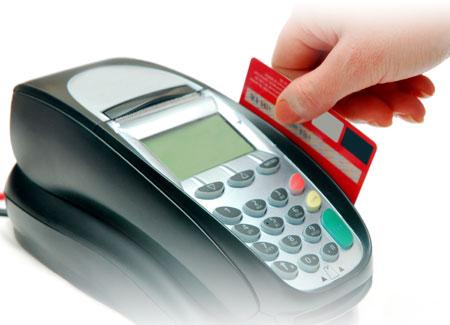 Over the past several months we have written quite a lot about the various aspects of high risk payment processing — much more than we ever have. We have showed you how the underwriting review process looks like from the standpoint of the payment processor, we have written about the types of paperwork we need when considering an application and have explained why we need them. We have also devoted a lot of time and effort on the issue of communication between processors and merchants, for we’ve realized long ago that a merchant with poor communication skills is unlikely to be able to manage a successful business.
Over the past several months we have written quite a lot about the various aspects of high risk payment processing — much more than we ever have. We have showed you how the underwriting review process looks like from the standpoint of the payment processor, we have written about the types of paperwork we need when considering an application and have explained why we need them. We have also devoted a lot of time and effort on the issue of communication between processors and merchants, for we’ve realized long ago that a merchant with poor communication skills is unlikely to be able to manage a successful business.
Today we’ve decided to share our thoughts on what an applicant for a high risk merchant account should not be doing during the underwriting review. Whereas experience clearly indicates that most applicants will still be doing what they want — good or bad — regardless of any advice we may give them, if we can influence even a few merchants, this whole effort will be well worth it.
What you need to understand is that the underwriting of a high risk merchant account is a hugely involved process and even the smallest of things can make quite a difference — in the right direction or otherwise. So, while it is easy to get frustrated when you are constantly asked to provide one piece of document after another, long after you’ve filled out and signed the application form and emailed the supporting paperwork, and answered a series of questions, being able to nevertheless maintain a good working relationship with your prospective processor is critically important — perhaps it is the thing that at the end will determine the outcome. With that in mind, let us offer some suggestions.
The Pre-Application Process
Most of the merchants who contact us to inquire about our services end up going nowhere — not even making it to the pre-application review. And whereas it is true that most of them are just unqualified for the type of service we offer, there are still too many merchants who could have at least received a proposal from us, had they handled the communication process a little better. What you need to understand is that there are things we need to do, before we can tell you whether we would be able to work with you and if so, on what terms and we just have to go through the whole process — there is no other way to do it. So let’s examine the things that should be avoided during the pre-application review.
Merchants usually contact us by filling out one of the information forms on our website or blog. The sole purpose of these forms is to give us a broad idea of whether or not a given merchant would be a good fit for what we offer. If the prospect looks sufficiently promising, we will follow up with a phone call or an email to ask for additional information; if it does not, we just say so in an email. So the first thing to be avoided is giving us false information in that information form — if we end up initiating the application process, the real information will eventually come to light and, if it is not quite what we want to see, your application will be promptly declined and you will have wasted everyone’s time, your own very much included. We may have a different type of a solution that may work for you, but at this point we would not be willing to keep working with a merchant whose reliability cannot be trusted.
The other thing you should be avoiding doing during the pre-application review is to keep insisting on getting specific details about the terms of the service we would give you. See, this is not the type of credit card processing service provided by, say, First Data or Chase Paymentech. We cannot tell you the exact discount rate we would give you, what your payout schedule would be or whether or not there would be a reserve, before we have examined your paperwork. These are all things that are decided on a case-by-case basis and will be revealed in the detailed proposal we will send you at the completion of the application process. Demanding that you get precise answers to questions like these before the application review has even started is, well, a non-starter.
Making It through the Application Review
So, now you have filled out and signed the application forms, provided your six latest processing statements and all the other paperwork we had asked of you. Well, at this time we can initiate the underwriting review, during which it is virtually guaranteed that we will come across things that would need to be clarified, which can mean asking for either more documentation or a written explanation. This is where our merchants usually run into their biggest troubles. Having just provided all the paperwork needed to get the process going — and yes, it is a lot of paperwork — they feel like they’ve done their part and can now just relax and wait for us to do our bit. Well, this is not how this works in high risk. Things often start creeping out of the woodwork once we take a more careful look into a merchant with a high volume and some processing history. Keep in mind that the underwriter is considering taking on a lot of risk, so they will be very careful.
With that in mind, you should not be arguing with us about whether or not we actually need that additional piece of paperwork that we requested or the explanation of something or other we asked for. We would not have made the request if we didn’t need to and will do our best to explain precisely why it is that we need what we ask for. Without your full cooperation, we simply cannot make it through the review.
Similarly, you should not be giving us deadlines for completing the application review. On occasion we are able to get an application approved and the associated merchant account set up in less than a week, but typically the process takes weeks or months. We know very well that you need your merchant account just as quickly as possible and we are doing our best to make that happen, but there are certain procedures we have to follow and we will follow them, however long it takes. Putting us under unnecessary pressure will not make any difference to the final outcome, other than strain our relationship.
The Takeaway
What you have to keep in mind is that we want your business — we can’t do credit card processing if we have no one to process those payments for. However, the nature of our industry — the types of businesses we serve — requires that we are very careful when evaluating new applicants. If we get one one of them wrong — and it’s happened before — we can easily end up losing a lot of money and jeopardize our carefully cultivated relationships with our acquiring banks and the credit card networks. We just have to be very careful and not doing your part during the application review will not help either of us.
What Our Customers Are Saying
UniBul is ranked based on 159 user reviews.
UniBul enables American and international businesses to accept payments for the things they sell on their websites.
![]()

















